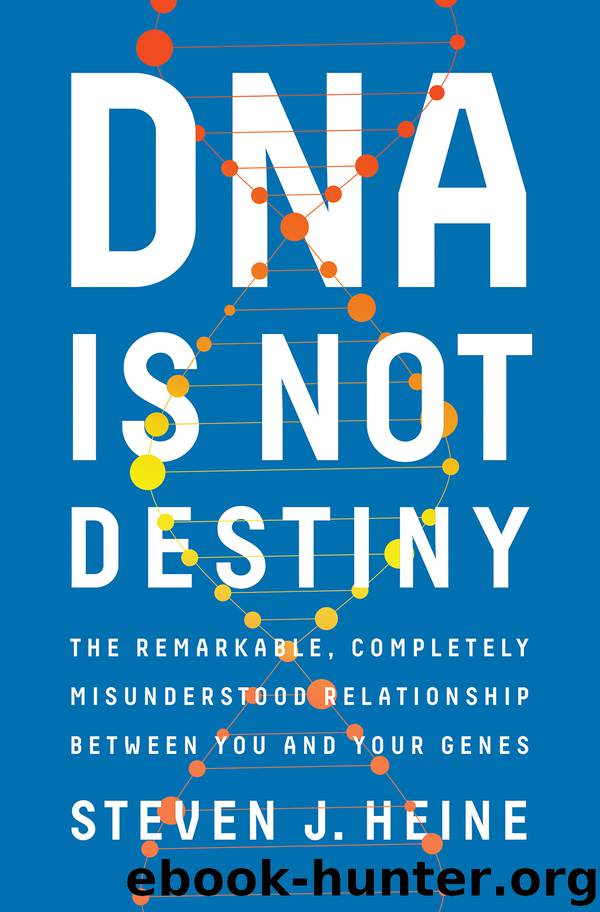DNA Is Not Destiny by Steven J. Heine

Author:Steven J. Heine
Language: eng
Format: epub
Publisher: W. W. Norton & Company
Race, Essences, and IQ
Every year I teach a course on cultural psychology that discusses the ways people’s thinking styles differ around the world. Students tend to find it interesting to learn about how, for example, Americans from the South respond more aggressively to insults than those from the North, Japanese look more at the backgrounds when they look at photographs, Russians wallow more in their suffering (yet are less likely to get depressed), Koreans perform worse on cognitive tasks when they try to verbalize their thoughts, and Malaysian men sometimes suffer from an imagined penis-shrinking disorder. The classroom discussions are often animated, and students seem to really enjoy learning about how cultural experiences come to shape the ways that we think. But there is one question that, whenever it is brought up, leaves the class deadly silent and looking uncomfortable. Steven Pinker called it “the most dangerous idea,”25 and it is often associated with racists. The question is: Does the intelligence of people vary across ethnicities?
One of the most controversial books ever published, The Bell Curve, written by Richard Herrnstein and Charles Murray in 1994, argued that it does.26 Their general argument is thus: IQ predicts people’s success at school and the kinds of jobs that they will ultimately get; IQ comes largely from one’s genes; on average, Black Americans score somewhat lower on IQ tests than White Americans, who, in turn, score a little lower than Asian Americans; and these racial differences in IQ test performance are probably due to genes. Moreover, Herrnstein and Murray argue that we’ll never be able to reduce these racial gaps, given that they’re genetic, so we would be better off investing in the education of those who have a high enough IQ to be able to do something with it. As you might expect, with these kinds of contentious conclusions, the book set off an academic firestorm—there have since been far more pages written critiquing their book than there are pages in the actual book itself. I think the book provoked such a sustained angry response, not because it was based on illogical arguments (which would have led it to be ignored), but because Herrnstein and Murray’s logic holds up reasonably well if you accept that IQ is like an essence. If IQ is indeed like an essence, then the only real way to make sense of any racial differences in IQ would be to conclude that one race has a less intelligent essence than the other. And because IQ is often talked about in essence-like terms, even sometimes by intelligence researchers, Herrnstein’s and Murray’s basic argument is difficult to dismiss offhand. Herrnstein and Murray cited a survey of more than 1,000 scholars conducted in the 1980s in which only 15 percent said that they believed the racial gap in IQ was due entirely to environmental experiences (that is, genes were not involved). The most common answer offered was that the racial gap in IQ was due to both genetic and environmental differences between the races.
Download
This site does not store any files on its server. We only index and link to content provided by other sites. Please contact the content providers to delete copyright contents if any and email us, we'll remove relevant links or contents immediately.
Rewire Your Anxious Brain by Catherine M. Pittman(17619)
Talking to Strangers by Malcolm Gladwell(11950)
The Art of Thinking Clearly by Rolf Dobelli(8896)
Mindhunter: Inside the FBI's Elite Serial Crime Unit by John E. Douglas & Mark Olshaker(7873)
Becoming Supernatural by Dr. Joe Dispenza(7141)
Change Your Questions, Change Your Life by Marilee Adams(6684)
The Road Less Traveled by M. Scott Peck(6670)
Nudge - Improving Decisions about Health, Wealth, and Happiness by Thaler Sunstein(6666)
The Lost Art of Listening by Michael P. Nichols(6510)
Enlightenment Now: The Case for Reason, Science, Humanism, and Progress by Steven Pinker(6434)
Win Bigly by Scott Adams(6341)
Mastermind: How to Think Like Sherlock Holmes by Maria Konnikova(6275)
The Way of Zen by Alan W. Watts(5828)
Daring Greatly by Brene Brown(5679)
Big Magic: Creative Living Beyond Fear by Elizabeth Gilbert(4762)
Grit by Angela Duckworth(4760)
Men In Love by Nancy Friday(4365)
Flow by Mihaly Csikszentmihalyi(4078)
The Four Tendencies by Gretchen Rubin(4042)
